Public Health Library
Science in Context: The UC Berkeley School of Public Health Oral History Project
As we know from our daily experience of the COVID-19 pandemic, public health is a political and cultural flashpoint in American society, as it has been since its emergence as a field of study and area of state authority in the 19th century. Whereas conventional biomedicine situates illness squarely inside the human body — a matter of damage to or malfunction of organ systems — public health looks outward, to the communication of diseases among populations and to the social factors that contribute to health or illness. Public health practitioners look at everything from the aggregate of individual human choices, such as smoking, to larger, deeper historical structures in society, such as the impact of systemic racism on health outcomes. Is it the government telling you how you or your children should behave, or is it science-based advice to help reduce rates of illness, harm, or death in society? Public health is science in political context like few other fields of research.
Well over a decade ago, the School of Public Health at UC Berkeley began to take stock of this positioning and reflect on how a teaching and research institution could better respond to the challenges of science in context. This set of interviews emerged from an effort to document the recent history and institutional evolution of the school. Steve Shortell, who was dean of the school from 2002 until 2013, wanted to chronicle the foundation and growth of the On-campus/Online Professional MPH (master’s of public health) Program; the reinstitution of the undergraduate major in public health; the development of an office of diversity; a graduate program in public health practice and leadership; and a center for health leadership, formerly known as the Center for Public Health Practice and Leadership and currently known as RISE. Dean Shortell also wanted to feature some key leaders associated with these developments.

There are three interviews with Dean Shortell that provide the context for the institutional changes during this period, as well as explorations of his career in health management research. Executive Associate Dean Thomas Rundall was also interviewed about multiple initiatives, including his leadership of the graduate programs in health management and co-directorship of the Center for Lean Engagement and Research in Healthcare (CLEAR). Jeffrey Oxendine was interviewed about his role as co-founder and associate dean of the Center for Public Health Practice and Leadership, which began in 2008. Another feature of this oral history project was to explore the reinstitution of the undergraduate major in public health in 2003. Dr. Lisa Barcellos was interviewed in part about her leadership of that program and her research on the genetic and environmental factors involved in autoimmune disease.
There is also a set of interviews surrounding the establishment and growth of the online MPH program. Dr. Nap Hosang was the first director of the hybrid master’s of public health program, and he discusses the unique features of the program’s design, particularly with respect to accessing a diverse and unique pool of student talent, which contributed to the program’s success in subsequent years. Dr. Deborah Barnett was interviewed partly about her capacity as the successor and current leader of the program and as chief of curriculum and instruction. Alberta (Abby) Rincón recounted the history of her time as director of diversity and the foundation of the DREAM (Diversity, Respect, Equity, Action, Multiculturalism) office in the school. In her interview, chair of the Division of Community Health Sciences Dr. Denise Herd discusses the history of research in health disparities and the social determinants of health — a subject that is raised in many of the interviews — and her participation in the campus-wide Othering & Belonging Institute. Finally, Dr. Art Reingold was interviewed about his several decades as director of the Division of Epidemiology, the online MPH program, and teaching in the time of COVID.
If the field of public health is broadly defined as the study of health at the population level, this set of interviews reveals the broadest themes of health in context: the environment that shapes the expression of genes, the factors that lead to the nourishment or deprivation of bodies and minds, the factors that determine who gets to study or teach public health, the factors that shape the delivery of health care, and the contexts that shape the interactions between human bodies and other organisms and pathogens. The overarching story is about how these individuals studied, improved, and optimized institutional attention to these larger contexts, contributing to one of the most extraordinary public health programs in the country.
Read more from the individual interviews below:
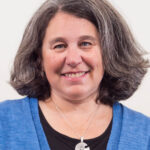
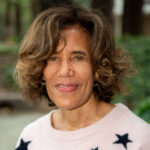

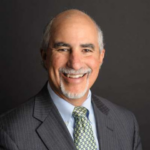
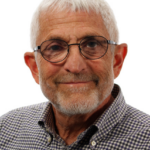



Call for comment: Pamela P. Fong Optometry and Health Sciences Library
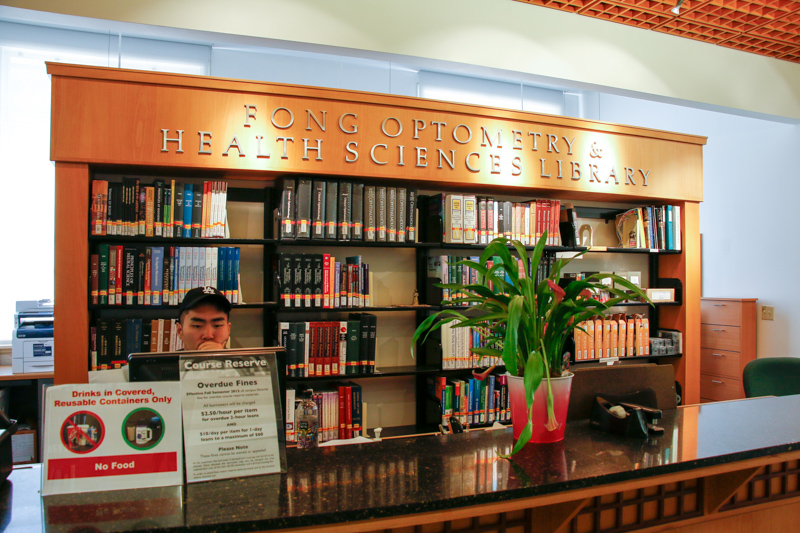
A call for comment issued this week by University Librarian Jeffrey MacKie-Mason and John Flanagan, dean of the School of Optometry, encourages all interested parties to carefully read the proposed plan for the Pamela P. Fong Optometry and Health Sciences Library at UC Berkeley and to submit comments and recommendations for consideration. All suggestions will be given consideration; most helpful are ideas that take into account the academic and scholarly needs of students and faculty at UC Berkeley and enhance the mission of the Library and the university.
The comment period is open through November 18, 2021. We invite you to submit comments via email to libraryforum@lists.berkeley.edu.
Under the proposal, the Optometry Library space will be transferred to the School of Optometry to enhance its teaching and learning space, and the Optometry Library’s services and collections will be combined with those of the Bioscience, Natural Resources & Public Health Library.
By turning the Optometry Library space permanently over to the School of Optometry, the call for comment states, the school will be able to expand its student study and meeting room spaces and provide patrons with longer hours of access. By bringing Library staff together in one location, the Library can offer optometry students, faculty, and staff better-supported operations and services.
CDPH In The News June, 2018: Final Issue
CDPH in the News
Navy Finds More Radiation Data Falsification at Hunters Point
from NBC Bay Area
Internal emails from the California Department of Public Health uncovered by the NBC Bay Area Investigative Unit through a public records request in 2015 show regulators, including the Navy, had concerns that radiological scans on 22 buildings at Hunters Point “were collected too fast.” As a result, the California Department of Public Health suspended the release recommendations for those 22 buildings. A release recommendation indicates any radiation that may have existed on a site has been cleaned up, doesn’t pose a health threat and can be turned over for redevelopment.
Deaths from fentanyl surge to record in California
from San Francisco Chronicle
According to the California Department of Public Health, 373 people died from fentanyl overdoses last year. That is more than the number who died from fentanyl overdoses in 2016, and more than four times the 81 who died from overdosing on the drug in 2013. It is the highest number of fentanyl-related deaths the state has seen since public health officials began tracking the numbers in 2008.
State Agency Criticized for Failing to Protect Highest At-Risk Communities
from Beyond Pesticides
California’s Department of Pesticide Regulation (DPR) is falling short of protecting vulnerable communities in the state, especially low-income and communities of color. This, according to a new report by California Environmental Justice Alliance (CEJA), which assesses state agencies on eight environmental justice principles. The poor showing by DPR comes at the forefront of reports that the state’s pesticide use has increased, nearing record highs.
CEJA’s assessment is the only one in the nation to evaluate state agencies based on the impact of their environmental policies on low-income communities and communities of color. This is critical as the California Department of Public Health finds that Latino schoolchildren are almost twice as likely as their white peers to attend schools in the top quartile for nearby pesticide use, but DPR’s regulations do not address the racial disparity in exposure.
State declares ‘immediate jeopardy’ at UC San Diego hospital over dirty surgical instruments
from Becker’s
California health officials declared “immediate jeopardy” at UC San Diego Health-Hillcrest in March for at least the eighth time after officials discovered issues with how surgical equipment was cleaned. The deficiencies were discovered during the California Department of Public Health’s routine compliance check at the hospital in March. Officials placed the hospital in “immediate jeopardy,” which indicates a hospital’s errors have caused or are likely to cause serious injury or death to patients. The designation was lifted 24 hours after it was initiated.
California Moving to Boost Lead Poisoning Prevention Programs for At-Risk Kids
from EWG News
An estimated half to three-fourths of lower-income young children in California don’t get the lead poisoning tests required by state and federal law. In response, state lawmakers are taking steps to strengthen the state’s childhood lead poisoning prevention efforts.
In January, an EWG analysis of state data found that between 2012 and 2016, almost three-fourths of California toddlers enrolled in Medi-Cal were not tested for lead in their blood. Our estimate was later reinforced by the state Department of Health Care Services, or DHCS, which reported that on average, each year 28 percent of the state’s toddlers are tested. Now, DHCS and the California Department of Public Health, or DPH, have released an analysis combining and matching the two agencies’ test data. The combined analysis found that in 2015, about 49 percent of 1- to 2-year-olds on Medi-Cal were tested, and about 41 percent of 2- to 3-year-olds were tested.
Public Health Library Updates
Hopefully, all of you saw Michael Marks’ May 30th email. It has a number of important dates in it. Please return all books by Monday, June 11th. In preparation for the cessation of the Public Health Library contract, Document Delivery requests will not be accepted after Wednesday, June 27th. Web portal access will shut down Friday, July 6th so be sure to retrieve all your PDF articles by then. A number of print journals that CDPH will not have electronic access to have been moved to the CDPH Richmond Building C Library. All topical training webpages (e.g., Literature Searching, Health Statistics/Data Resources, etc.) will be given to OQPA for CDPH access after July 1st. Don’t forget to register as a CDPH Library Services User with OQPA.
The Public Health Library is now closed to the public in preparation for our merger with the Bioscience and Natural Resources library over the summer; however, contract services continue until June 30th. If you need to visit us or have any questions, please call us at 510-642-2510 or email me.
To express our appreciation and bid farewell, we are having a Contract Farewell Event on June 20, 2018 from 4-6:30 pm. We would love to you to attend if you are available. Retirees are invited as well. Please RSVP at: https://www.surveymonkey.com/r/62018Farewell
If you have any questions, please let me know.
Debbie Jan
Debbie.Jan@cdph.ca.gov
Richmond Instruction: Public Health Digital Library Basics Hands-On
Wednesday, June 6, 2018, 10-11:30am
RCCC, P-1115
Building P, Richmond
————————-
RSVP by Tuesday, June 5th to Michael Sholinbeck at
msholinb@library.berkeley.edu or (510) 642-2510.
Please obtain your supervisor’s approval before you RSVP.
————————-
PLEASE NOTE: This class is limited to 42 participants.
NON-BUILDING P OCCUPANTS: Please make sure to register so your name will be on the class participant list given to the Building P Security Desk for entry into Building P.
Class Objective: Introduce the Public Health Digital Library resources to CDPH staff and show how to retrieve journals articles via your desktop.
Supervisors: Please encourage your staff to attend if appropriate.
The Public Health Library contract with CDPH ends June 30, 2018. At that time, CDPH will fully move over to the Public Health Digital Library (PHDL) provided by the National Public Health Coordination Office at the University of Massachusetts Medical School Lamar Soutter Library. This class will help CDPH staff transition over to the PHDL.
Topics covered will include:
1. Introduction to the Public Health Digital Library and its resources
2. How to access full text journal articles
3. Exploring some PHDL resources
4. How to create an account to attend online trainings
5. How to get help
These training sessions are free to CDPH staff. A certificate of completion will be available for those who attend the class.
Debbie Jan
Public Health Library
(510) 642-2510
Sacramento Instruction: Public Health Digital Library Hands-On
Wednesday, June 27, 10:30am-12:00pm
East End Complex TBD, Sacramento
————————-
RSVP by Tuesday, June 26th to Michael Sholinbeck at
msholinb@library.berkeley.edu or (510) 642-2510.
Please obtain your supervisor’s approval before you RSVP.
————————-
Class Objective: Introduce the Public Health Digital Library resources to CDPH staff and show how to retrieve journals articles via your desktop.
Supervisors: Please encourage your staff to attend if appropriate.
The Public Health Library contract with CDPH ends June 30, 2018. At that time, CDPH will fully move over to the Public Health Digital Library (PHDL) provided by the National Public Health Coordination Office at the University of Massachusetts Medical School Lamar Soutter Library. This class will help CDPH staff transition over to the PHDL.
Topics covered will include:
1. Introduction to the Public Health Digital Library and its resources
2. How to access full text journal articles
3. Exploring some PHDL resources
4. How to create an account to attend online trainings
5. How to get help
These training sessions are free to CDPH staff. A certificate of completion will be available for those who attend the class.
Debbie Jan
Public Health Library
(510) 642-2510
Professional Development: How to Communicate Effectively, Even When It’s Hard
Are you looking to improve your communication skills? Do you want tools that can help you improve the morale and quality of your workplace? Then this class might help!
We have more electronic tools than ever to help us stay in what may seem like constant contact with each other. Poor communication skills, however, can counteract those advances and be the bane of your work life. They can lead to never-ending email threads, unproductive meetings, confusing feedback, and disorganized project management.
Good communication skills, however, between bosses and workers, or between co-workers, can significantly improve the conditions and quality of work. One technique that can help is called Emotional Intelligence (EI).
In this class, you’ll learn:
* What EI is, why it’s important, and how to handle yourself and your relationships in ways that strengthen personal communication and leadership
* How to approach work styles and personality differences thoughtfully and effectively
* Practical tips and tools you can take with you and start implementing at your workplace tomorrow
Date: Thursday, June 14
Time: 11:00am – noon PT
Price: Free
Training provider: NextGen Nation
Conservation as a Public Health Strategy for Climate Change Preparedness: A webinar
Want to learn how nature conservation can be an essential component of building community resilience and can play a prominent role in public health planning? This webinar, held on May 9, examines this topic.
Researchers studying climate change have been focused on vulnerable populations and resilience as well as on acute illnesses such as heat exhaustion and zoonoses. This presentation will explore how nature conservation can be an essential component of building community resilience and can play a prominent role in public health planning. We will talk about how nature contributes to social and environmental determinants of health.
Conservation as a Public Health Strategy for Climate Change Preparedness is part of a series sponsored by the National Collaborating Centre for Environmental Health which is funded by funded by the Public Health Agency of Canada. The speaker is Dr. Craig Stephen, Chief Executive Officer of the Canadian Wildlife Health Cooperative.
The BCCDC/NCCEH Environmental Health Seminar Series provides an opportunity for learning and knowledge exchange on a variety of environmental health topics. The seminars can be attended in-person or online and include Cannabis Legalization and Environmental Health, and Policy options for healthier retail food environments in city-regions: The case for a solid measurement foundation among others that may be of interest.
Understanding & Responding to the Lifelong Effects of Opioid Exposure: A webinar
Are you interested in learning more about the impacts of the opioid epidemic on our children and families? Would you like to learn more about what health officials in other state are doing in response? Then you might want to tune in to this webinar hosted by the Association of State and Territorial Health Officials (ASTHO).
The opioid epidemic affects infants, children and families in many ways, from the effects of opioid exposure and withdrawal on infants born to mothers using opioids to the challenge of providing stable care to children while struggling with addiction. These early childhood experiences have lifelong impacts on health and quality of life, and are also significantly impacting state services and systems.
In response to this crisis, health officials across the country are implementing statewide solutions to protect and support families. Join this Live webcast event and learn from researchers, peer health officials, and other national leaders addressing the effects of the opioid epidemic on children and families. The panelists will share innovative approaches to preventing adverse childhood experiences related to opioid use and to promote healthy caregiver-child
relationships that help buffer the effects of trauma. Participants are invited to share their most pressing needs, promising approaches, and experiences, and to pose questions to panelists.
Date: Friday, June 8, 2018
Time: noon – 1:30pm PT
cost: Free (requires free login)
Panelists include:
* Dr. Stephen Patrick, Neonatologist at Vanderbilt University
* Dr. Karen Remley, CEO at American Academy of Pediatrics and former SHO-VA
* Dr. Michael Warren, Deputy Commissioner for Population Health at Tennessee Department of Health
* Moderator: Dr. Monica Bharel, Massachusetts Commissioner of Public Health
New Books!
Here are some new titles available online from the National Academies Press of the National Academy of Sciences, Engineering, and Medicine.
1. Opportunities for Improving Programs and Services for Children with Disabilities 2018.
2. Improving Health Research on Small Populations: Proceedings of a Workshop 2018.
3. Progress Toward Transforming the Integrated Risk Information System (IRIS) Program 2018.
4. Exploring Partnership Governance in Global Health: Proceedings of a Workshop 2018.
5. Achieving Rural Health Equity and Well-Being: Proceedings of a Workshop 2018.
Note: UCB Public Health Library book checkouts have stopped to allow time for processing. All books are due June 11th. Also, just a reminder that all library cards expire June 30, 2018 so if you have checked out any books yourself they need to be returned before the contract ends.